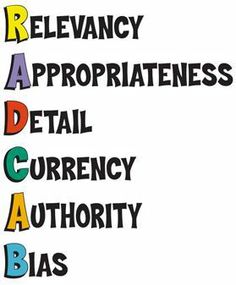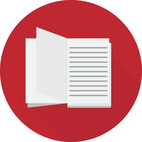#1 Creativity & Innovation | #2 Communication & Collaboration | #3 Research & Information Fluency |
#4 Critical Thinking, Problem Solving and Decision Making | #5 Digital Citizenship | #6 Technology Operations | Main Page
#4 Critical Thinking, Problem Solving and Decision Making | #5 Digital Citizenship | #6 Technology Operations | Main Page
|
Students apply digital tools to gather, evaluate, and use information.
|
If you have a device, anything from a transistor radio to a smartphone to an iwatch, you are awash in information. Any device these days is a spigot which, once opened, pours forth more information than the recipient can drink up. The trick is to know exactly what and how much you need, and to finesse the tool to take it in. ISTE Standard 3 on Research and Information Fluency is about students learning to be discerning in the ways they gather, evaluate and use this information. This is especially true because “the way people access information is changing, there is no longer one primary source for information and learning,” (Burbules, Ubiquitous Learning: New Contexts, New Processes, 2014). Helping students to get clear about the purpose of their inquiry will put them on this path for as Hickman says, “Tools have no essence, they of themselves aren’t good or bad, they only have functions with regard to situations” (Hickman, John Dewey’s Pragmatic Theory, 1990). Knowing how to be selective, critical and deliberate in gathering, evaluating and using information is an essential skill for the modern learner.
|
Teacher Resources
Classroom Resources
R.A.D.C.A.B. Lesson Paths |
Using the RADCAB Model to help discover innovative lessons and classroom activities. R.A.D.C.A.B. - Your Vehicle for Information Evaluation An acronym and approach to evaluating information created by Karen M. Christensson in her role as a Library Media Specialist. The sign includes visuals and rubrics. RADCAB Evaluation Tool | Use this link to access evaluation tool to see how RADCAB is right for you. Illinois Standards Aligned Instruction for Libraries (I-SAIL) | 6th Grade Sample
This sample provides a great comparison chart of Common Core, Next Generation Science Standards, I-SAIL, and ISTE Standards for Students. Chip Cash | The ISTE website has many resources such as this article featuring ISTE standards-aligned lesson plans. Interactive NETS*S |
This Wiki page on Interactive NETS*S features activities and lessons aligned to the ISTE Student Standard 3 down to the sub-standards. |
Blogs & Information Resources
Book Suggestion | $10.99 (Amazon)
Dr. Daniel J. Levitin, "The Organized Mind: This Is Your Brain on Information Overload" Catlin Tucker: Blended Learning & Technology in the Classroom
Blended Learning & Technology in the classroom. Catlin Tucker, author of Creatively Teach the Common Core Literacy Standards with Technology, is a teacher and speaker about technology in education. Marsha Scott: An Educator Exploring and Learning about the Digital World
Marsha Scott is an ELL teacher and blogger reflecting on her journey to research and implement technology in a meaningful way. R.A.D.C.A.B. - Your Vehicle for Information Evaluation
An acronym and approach to evaluating information created by Karen M. Christensson in her role as a Library Media Specialist. The sign includes visuals and rubrics. |

